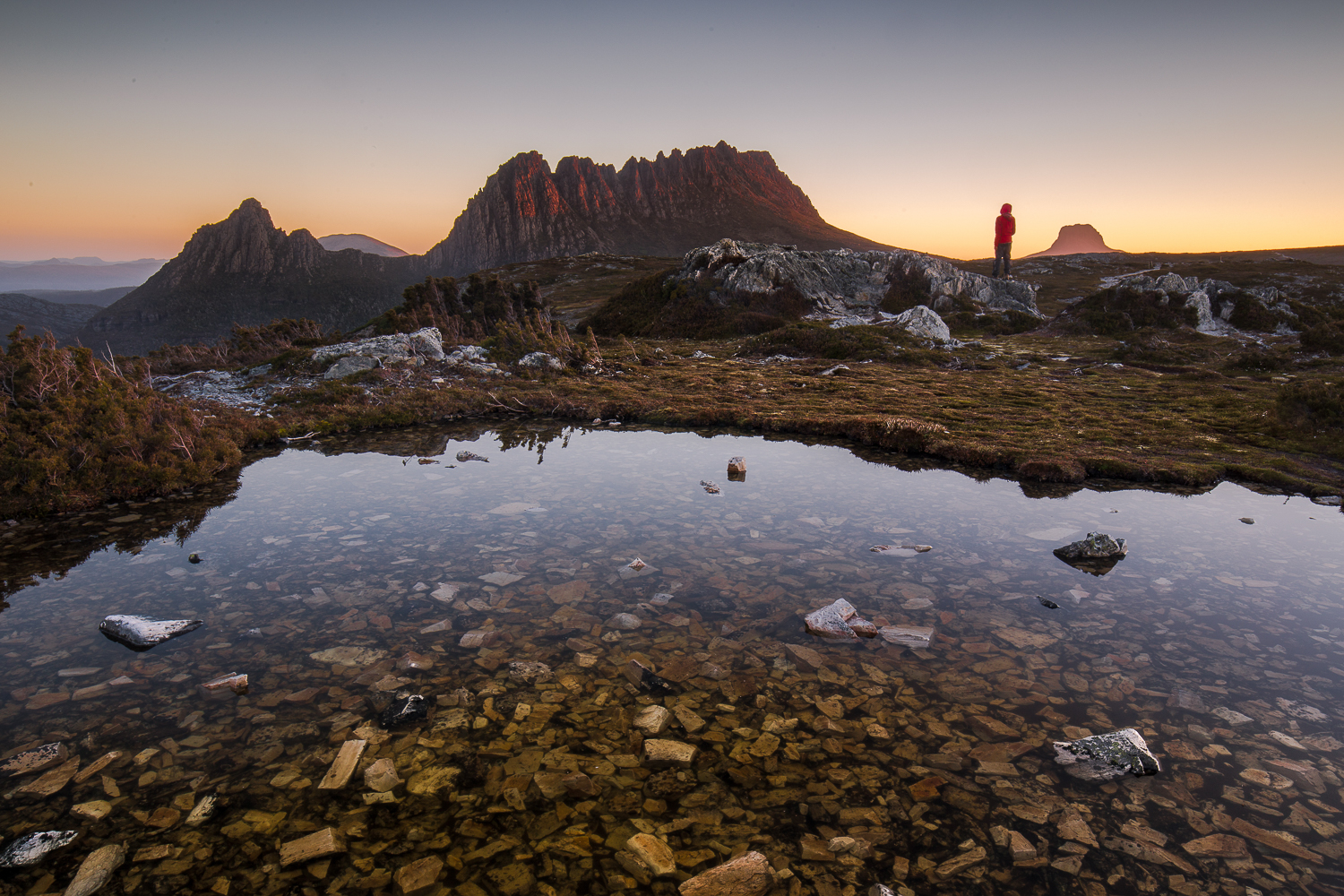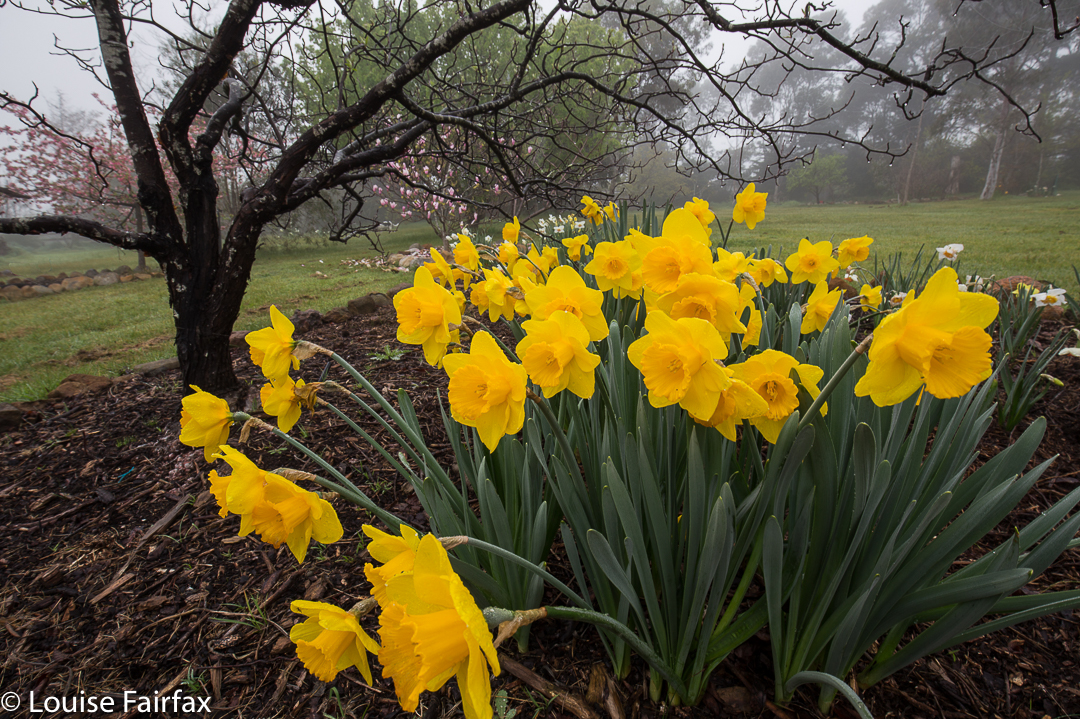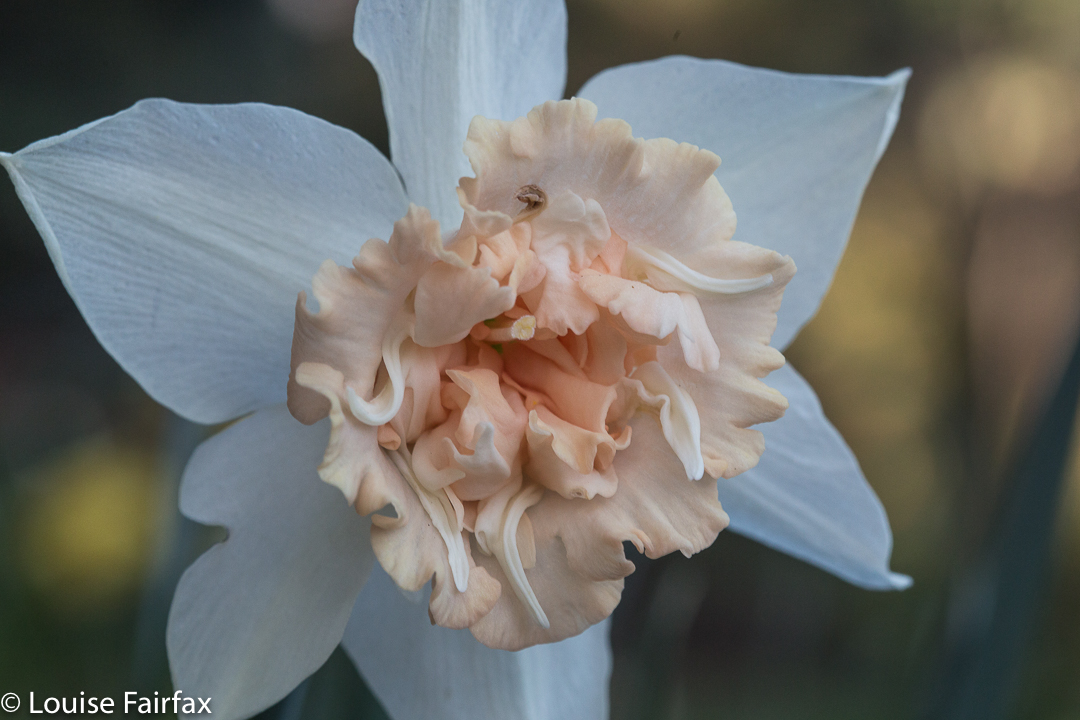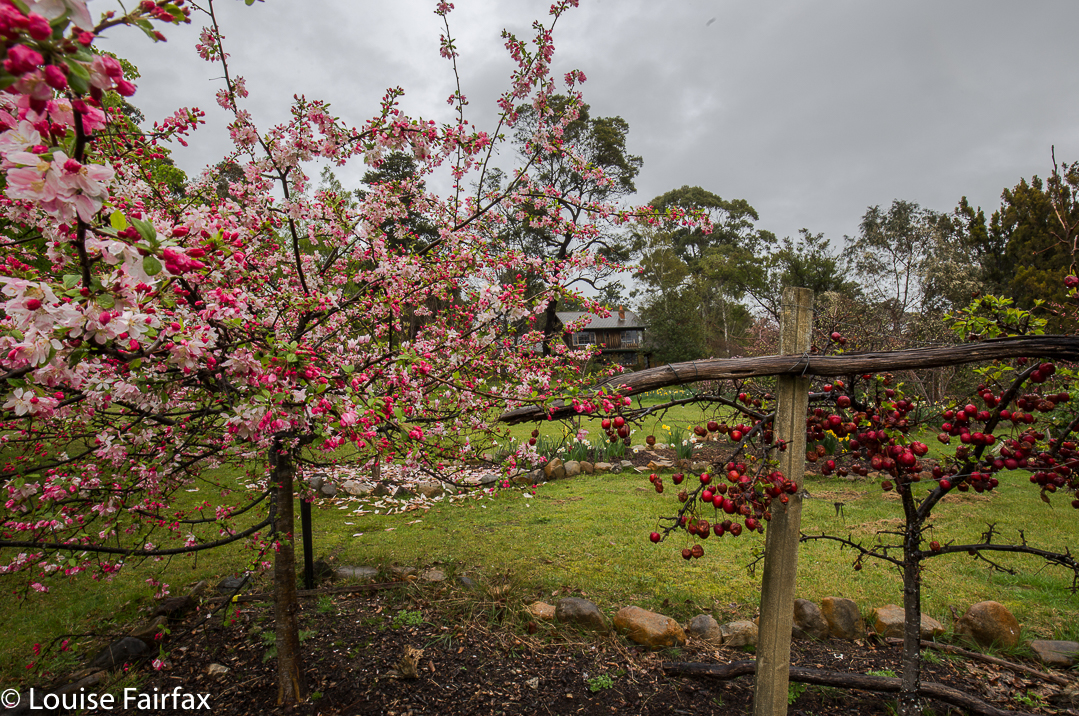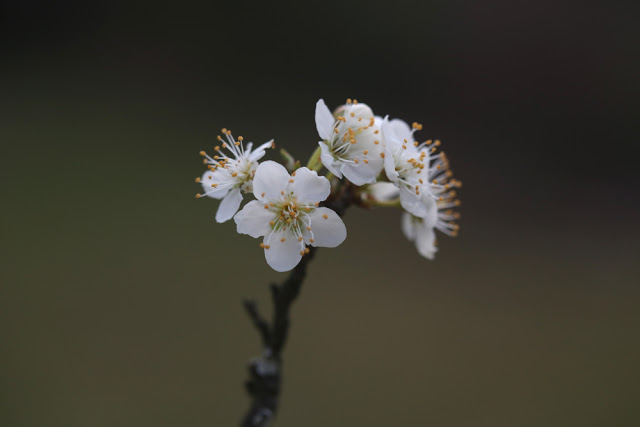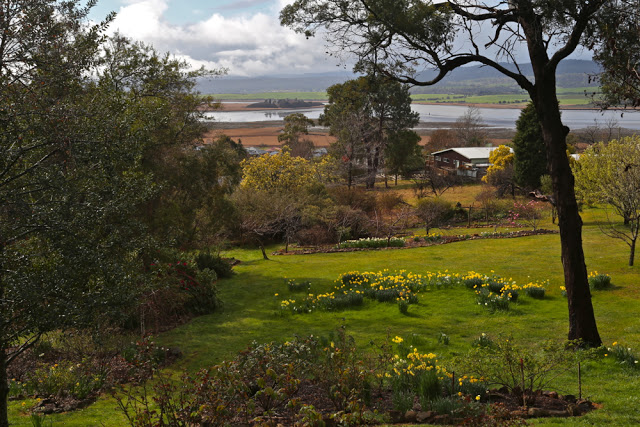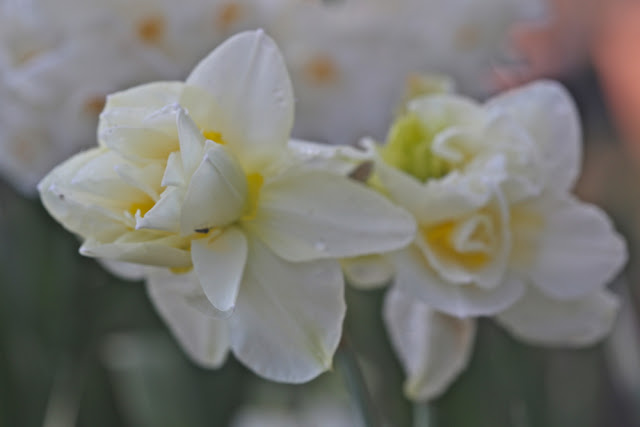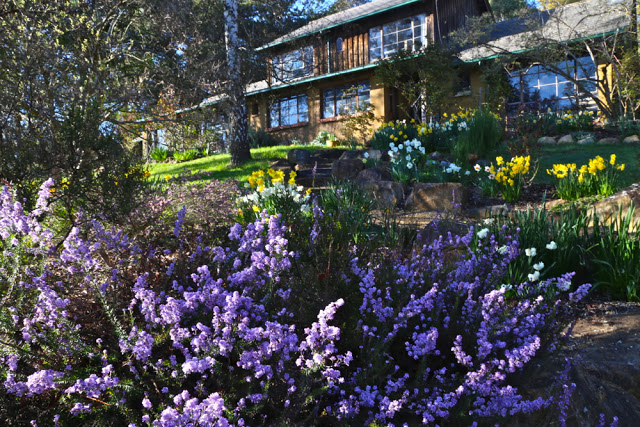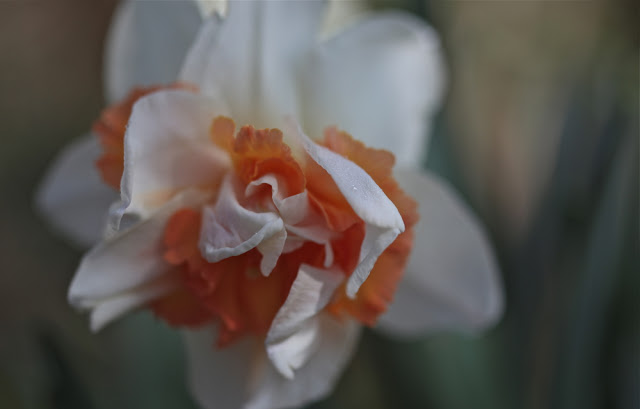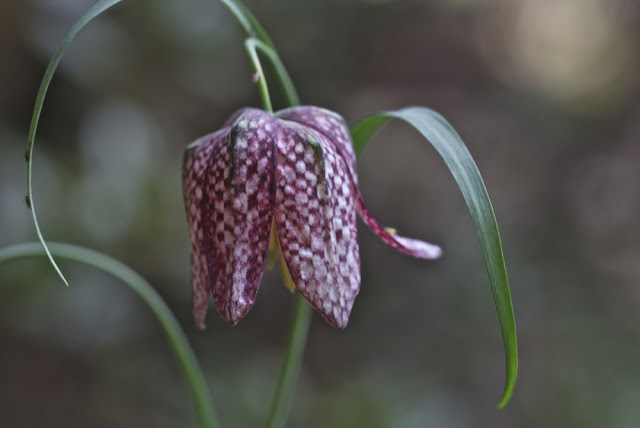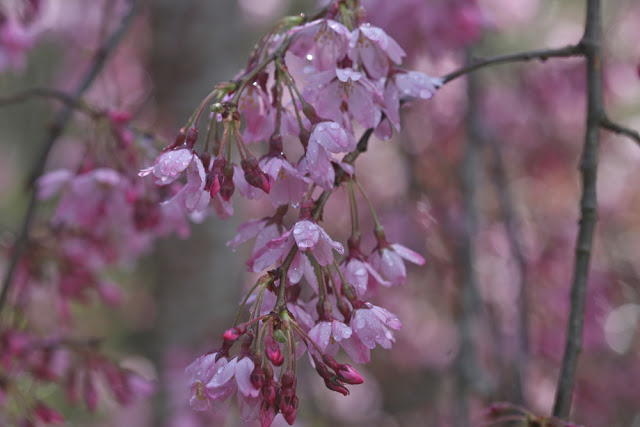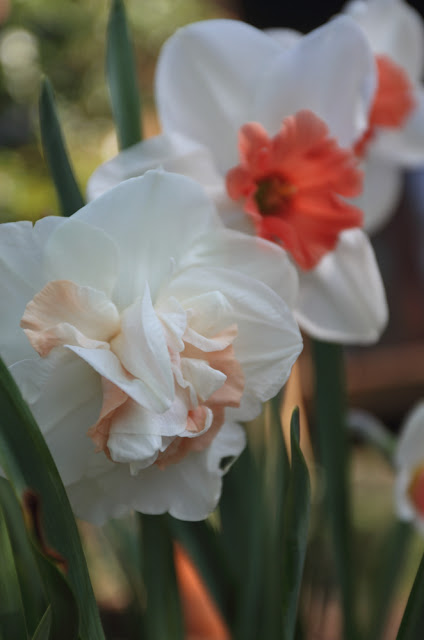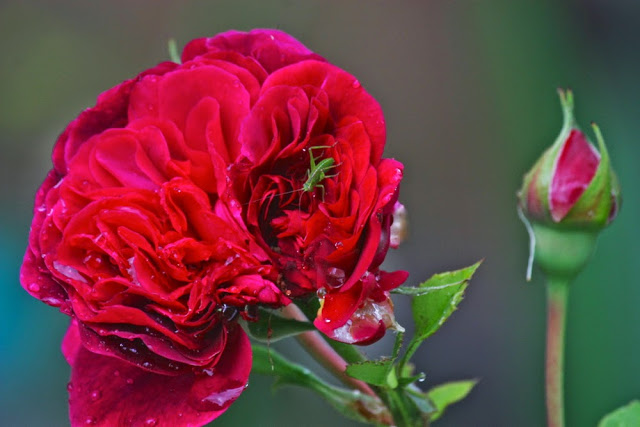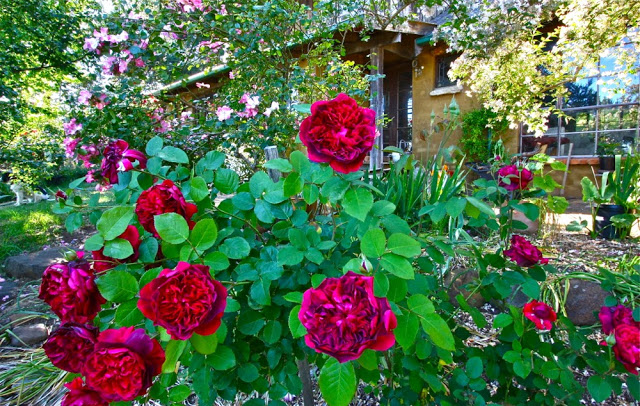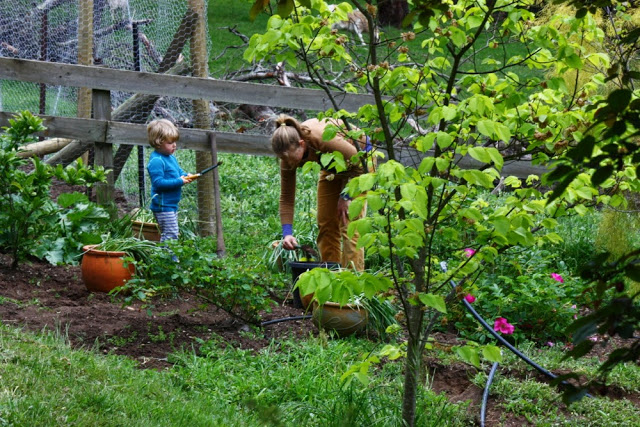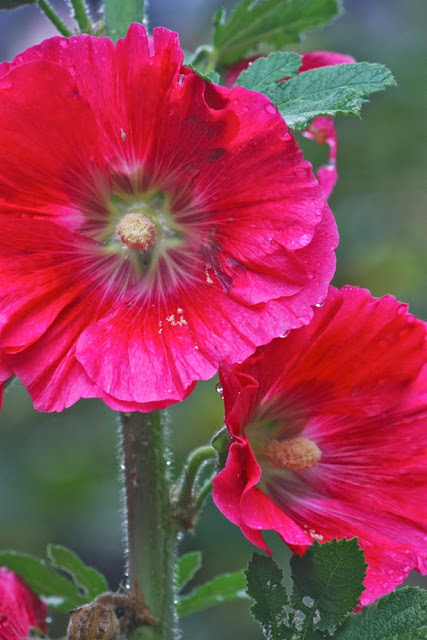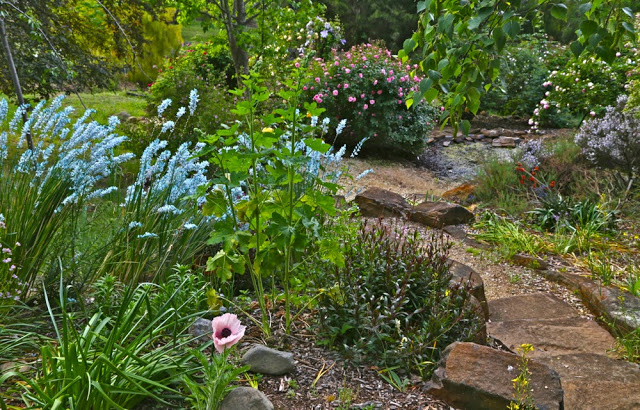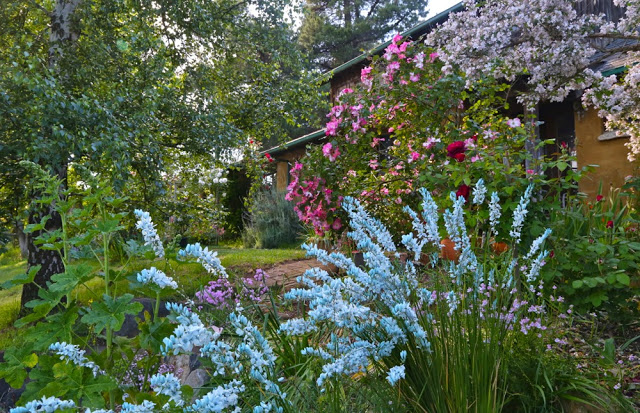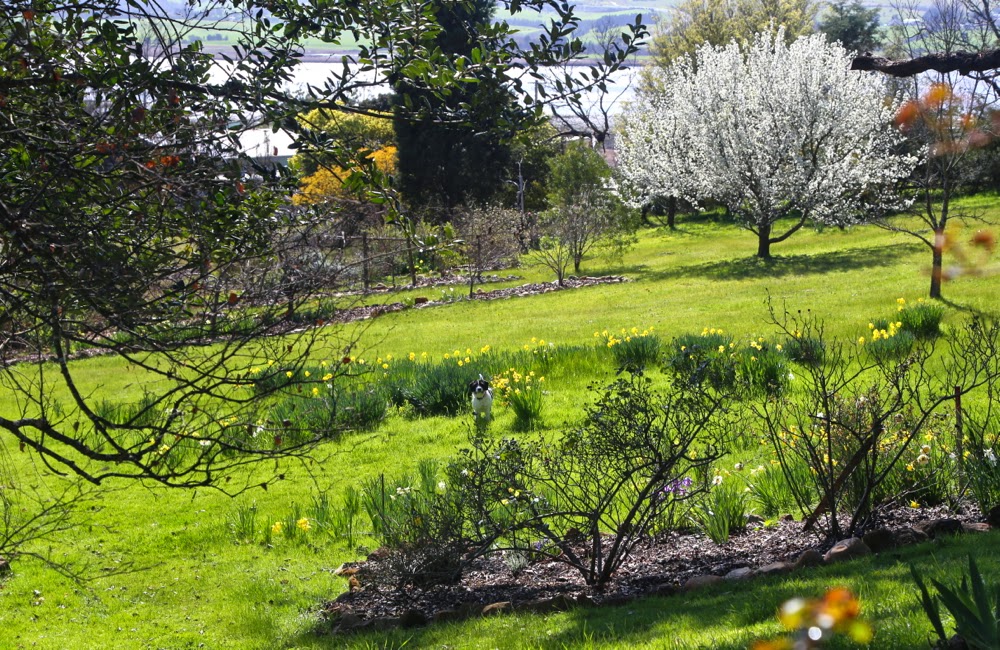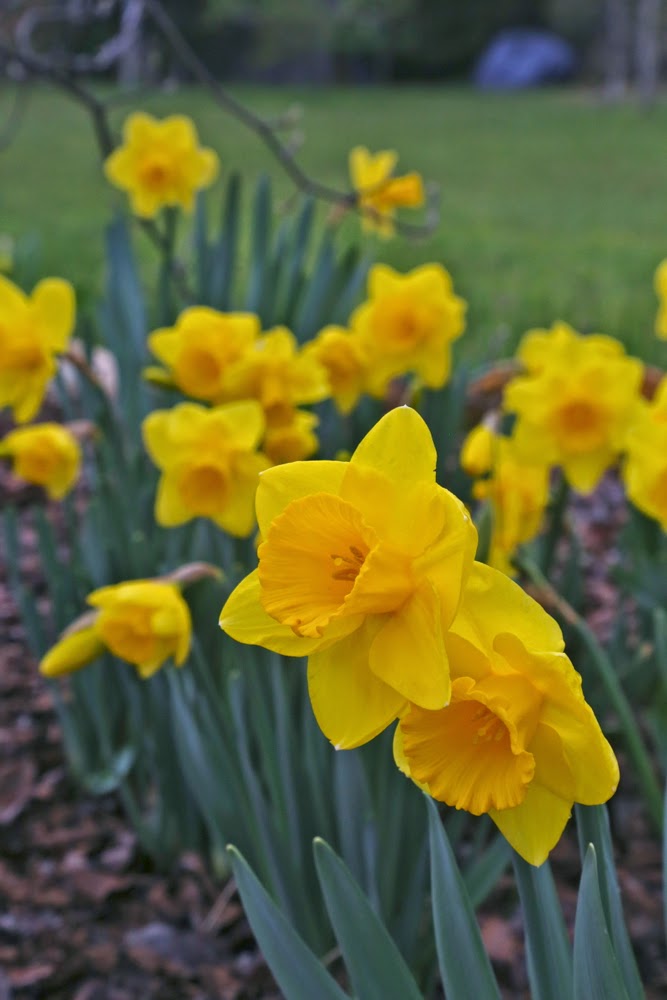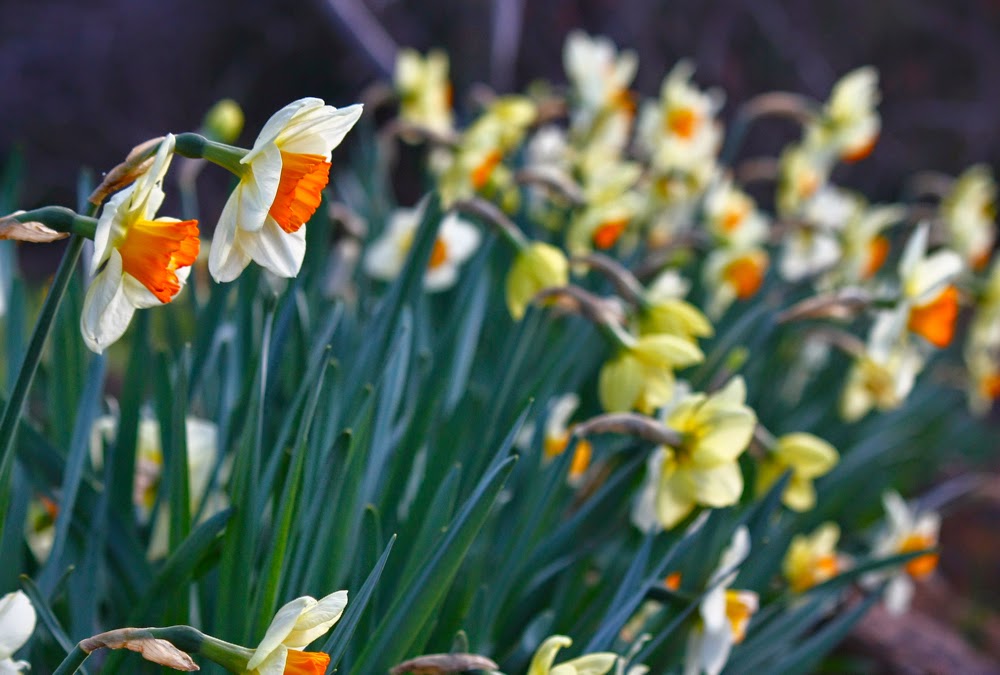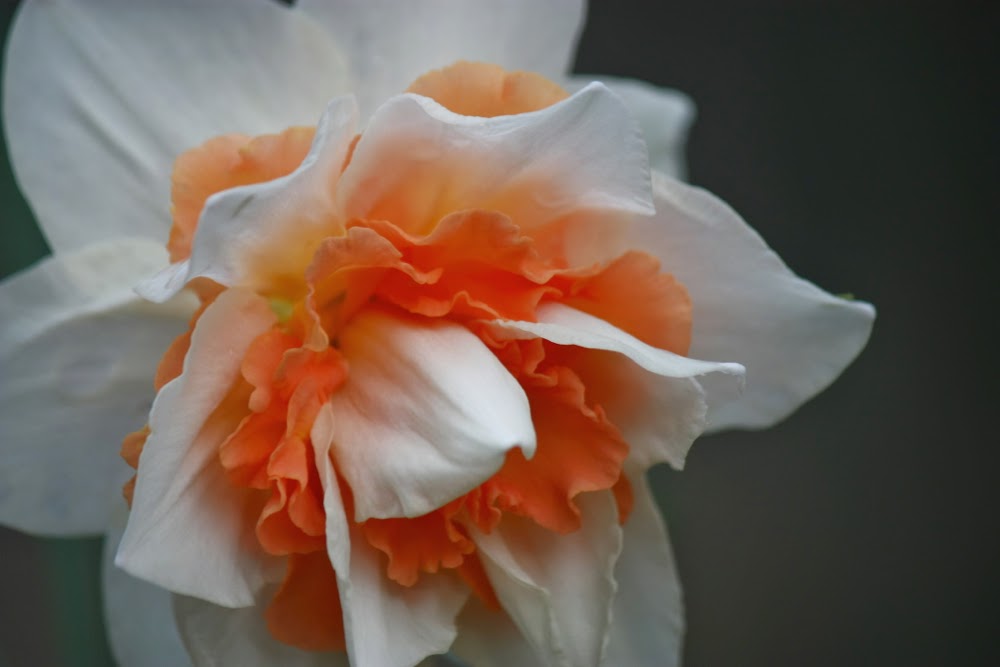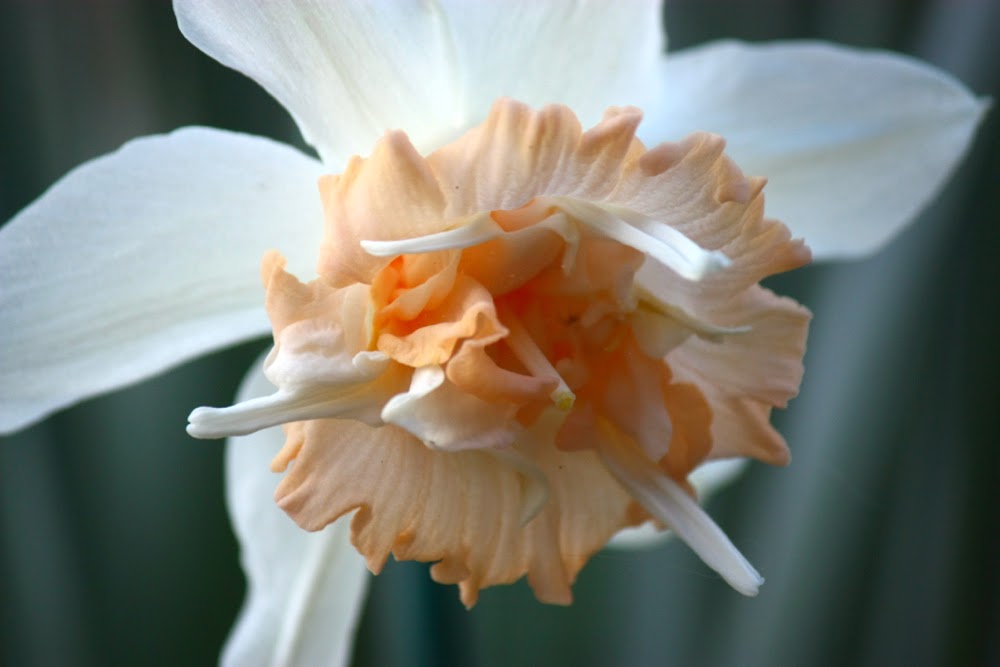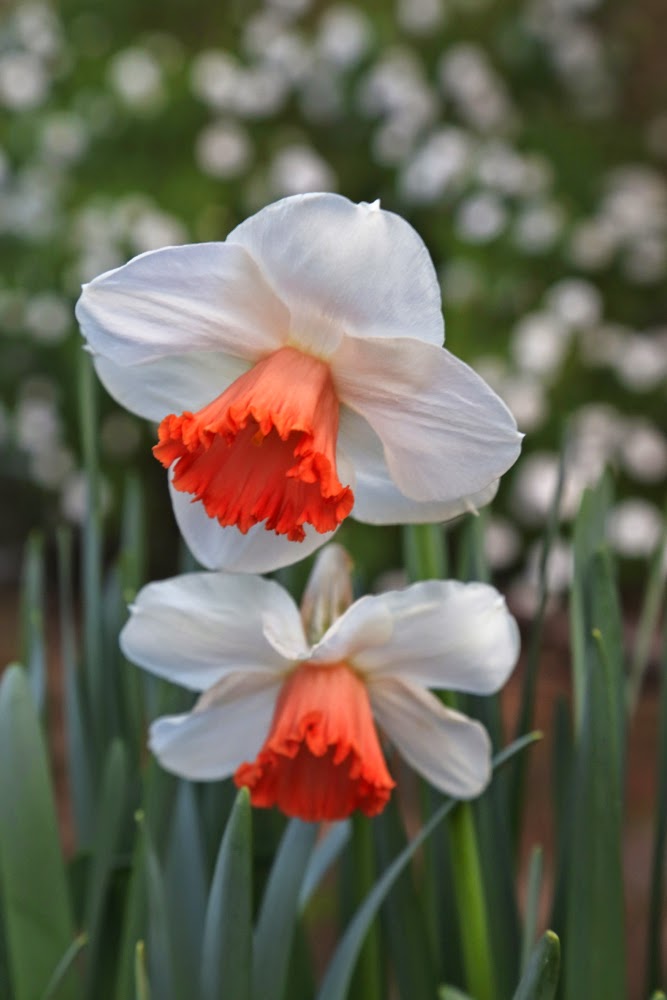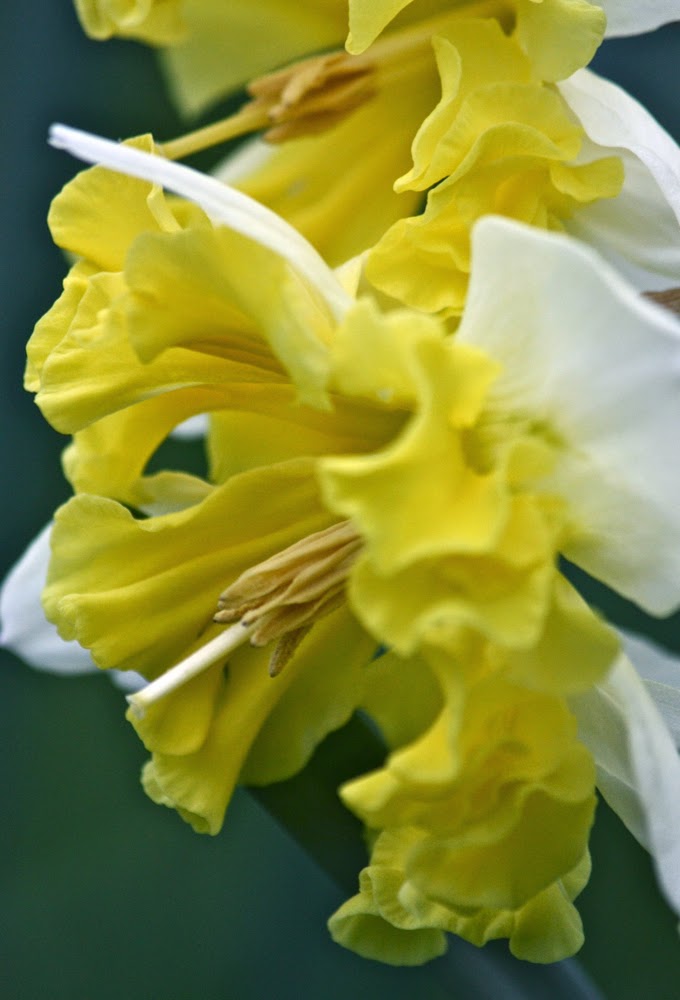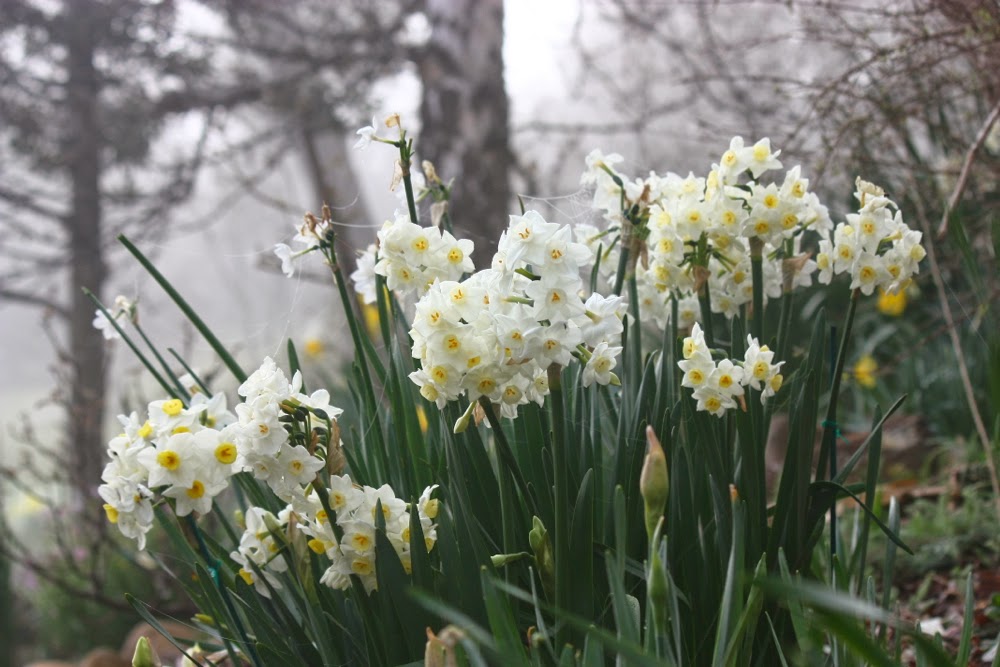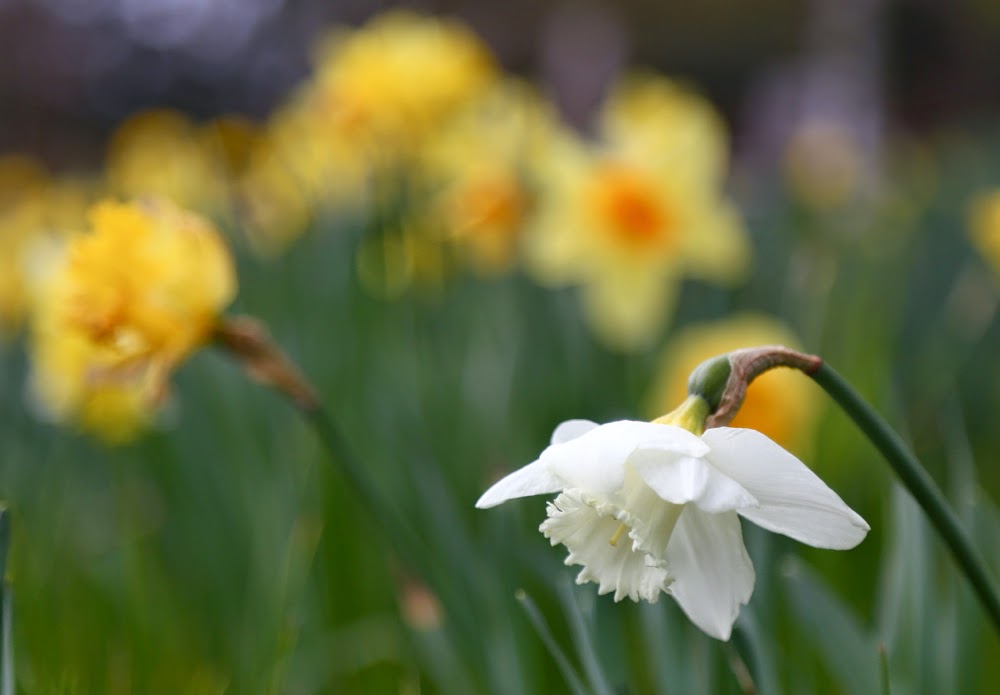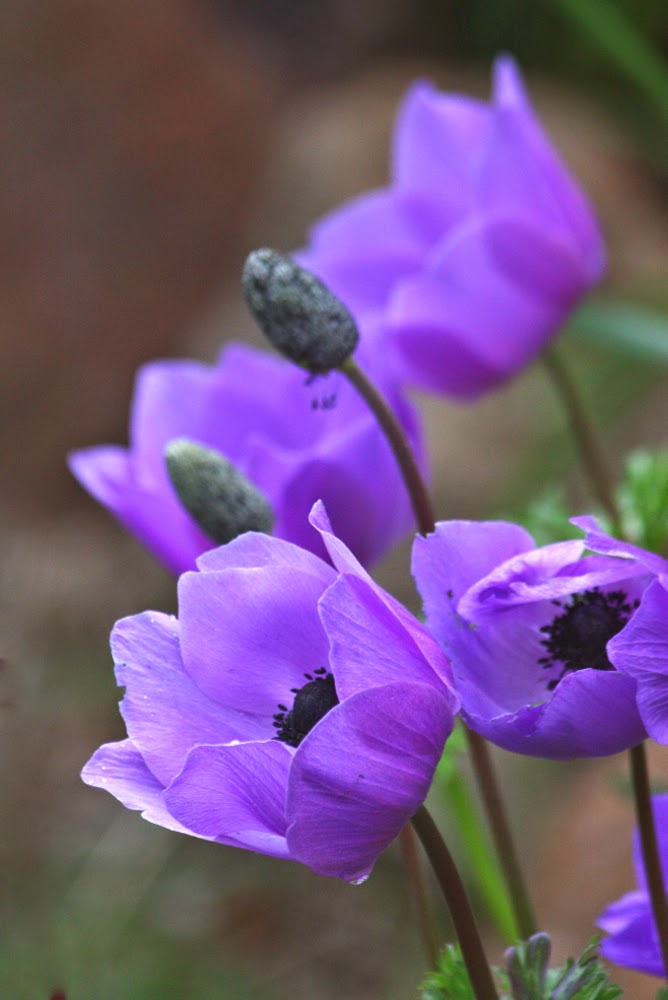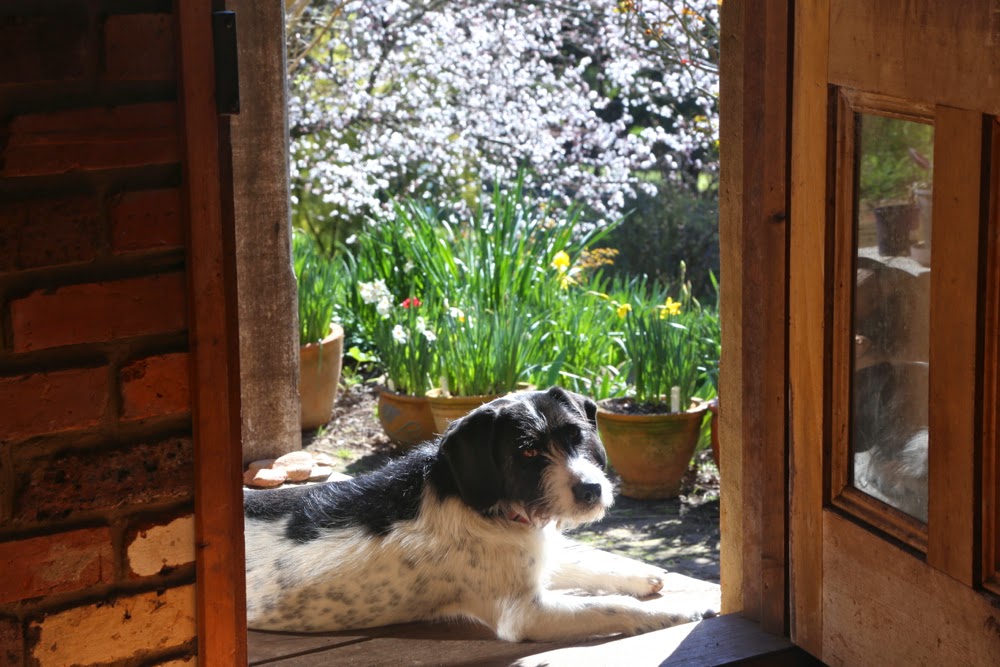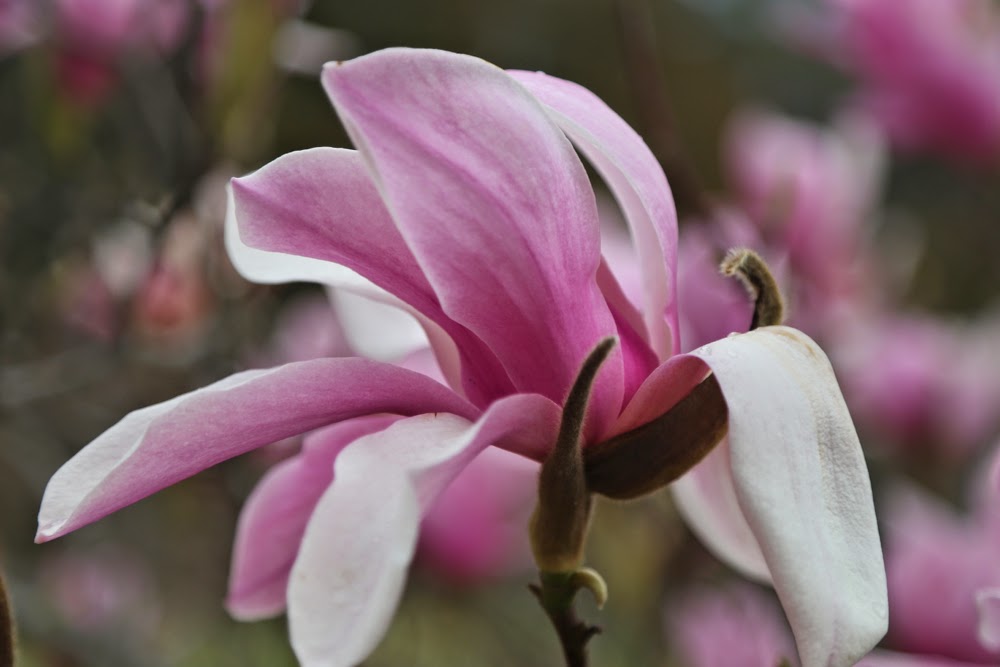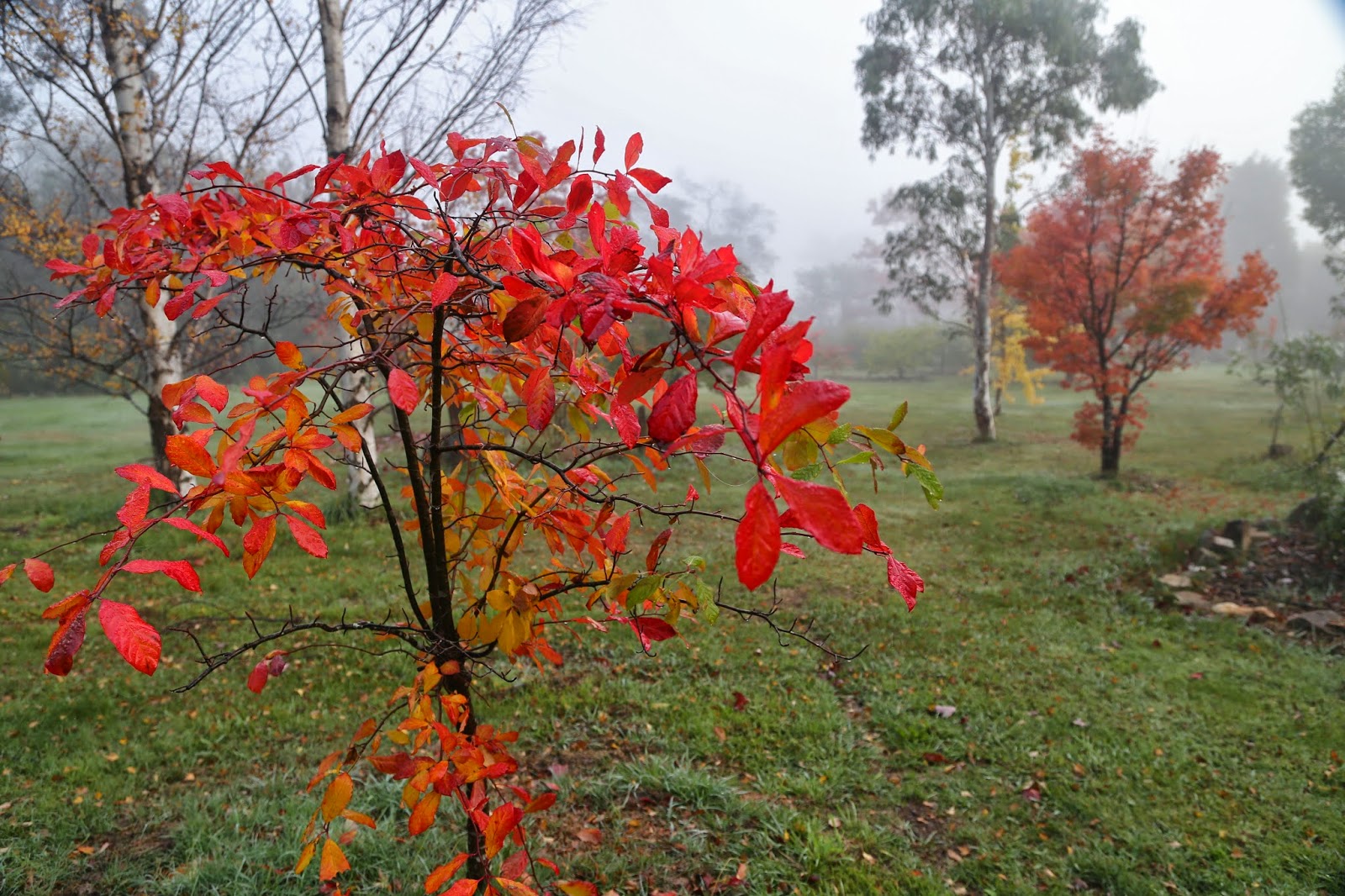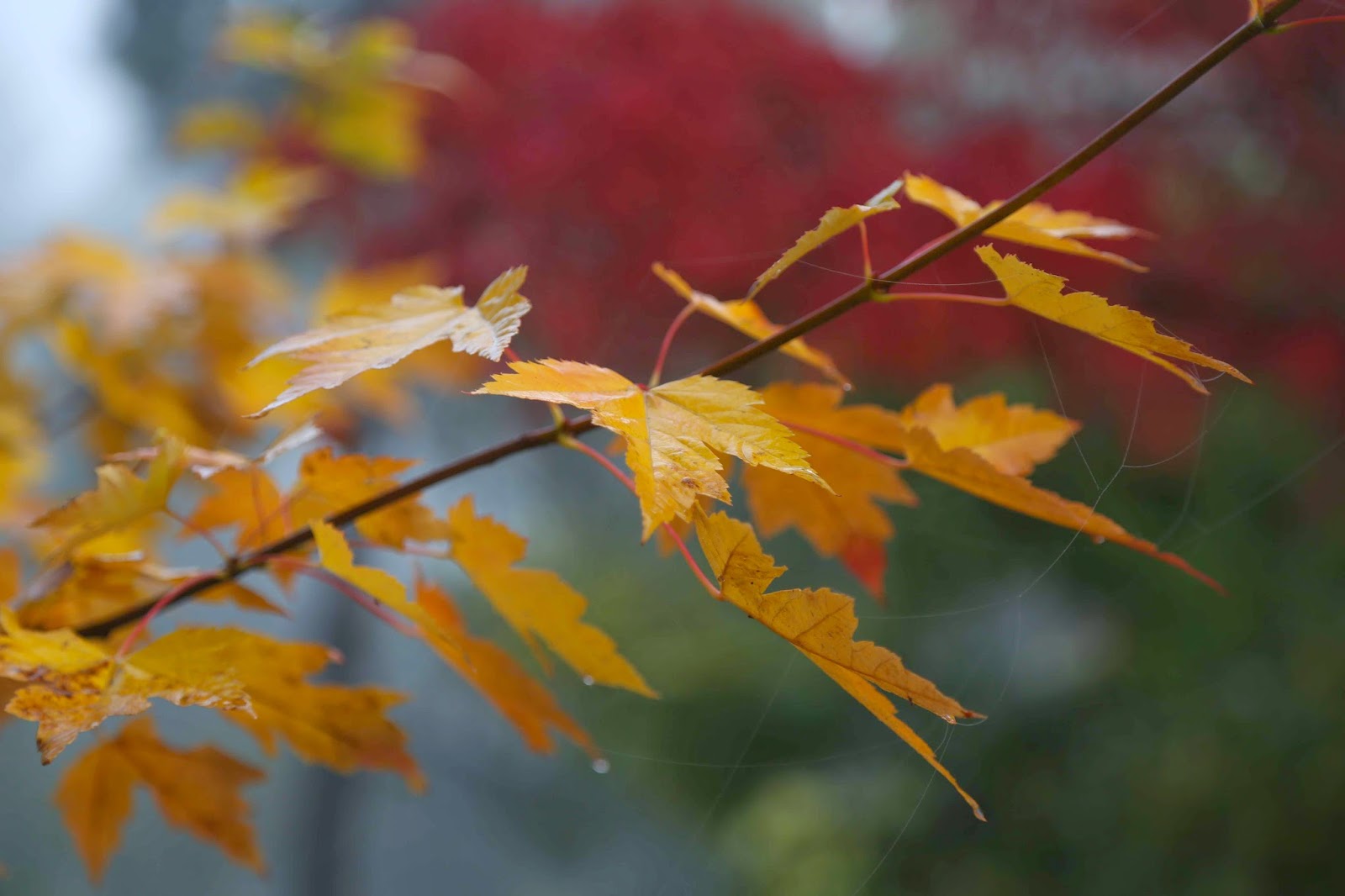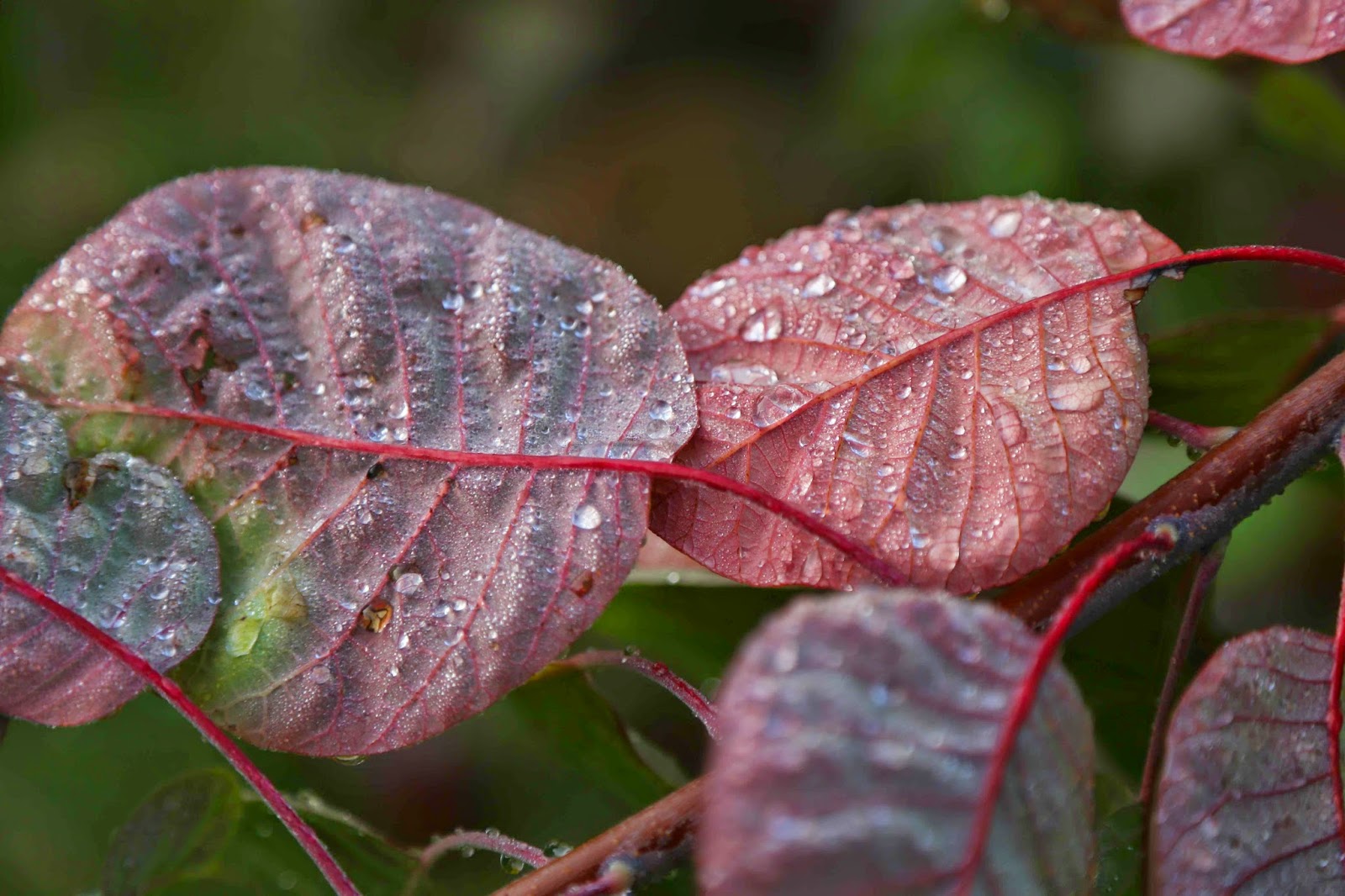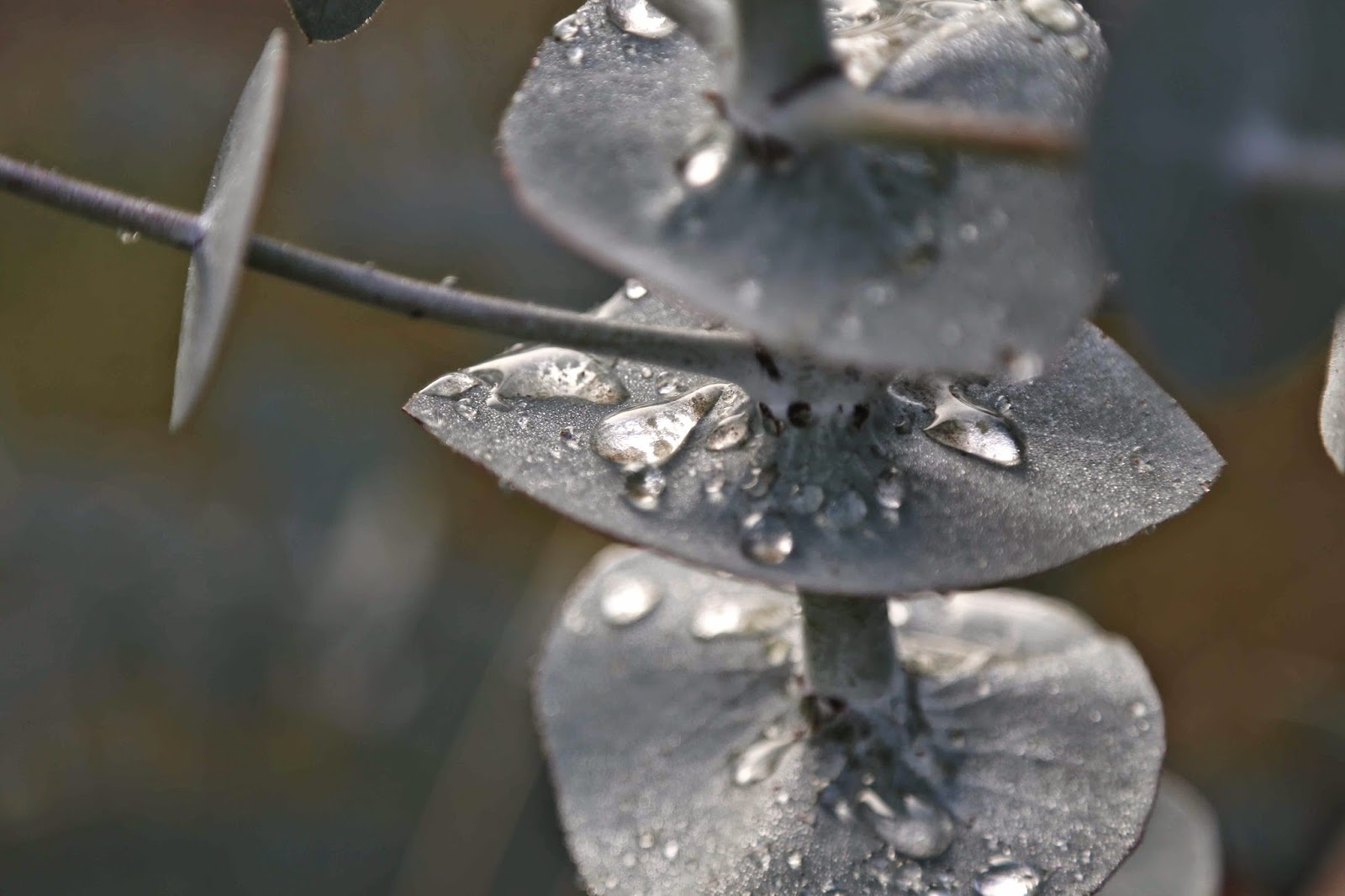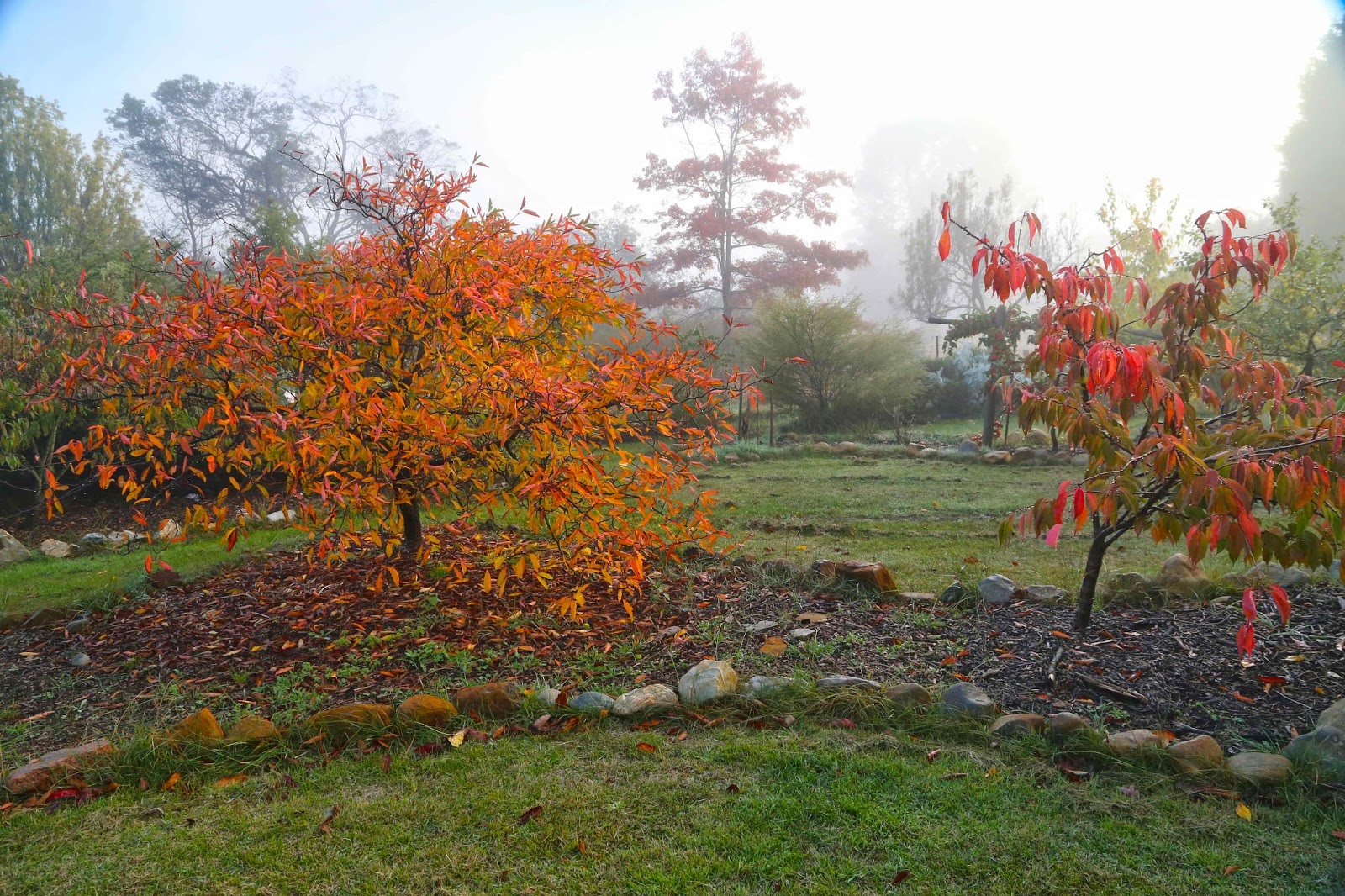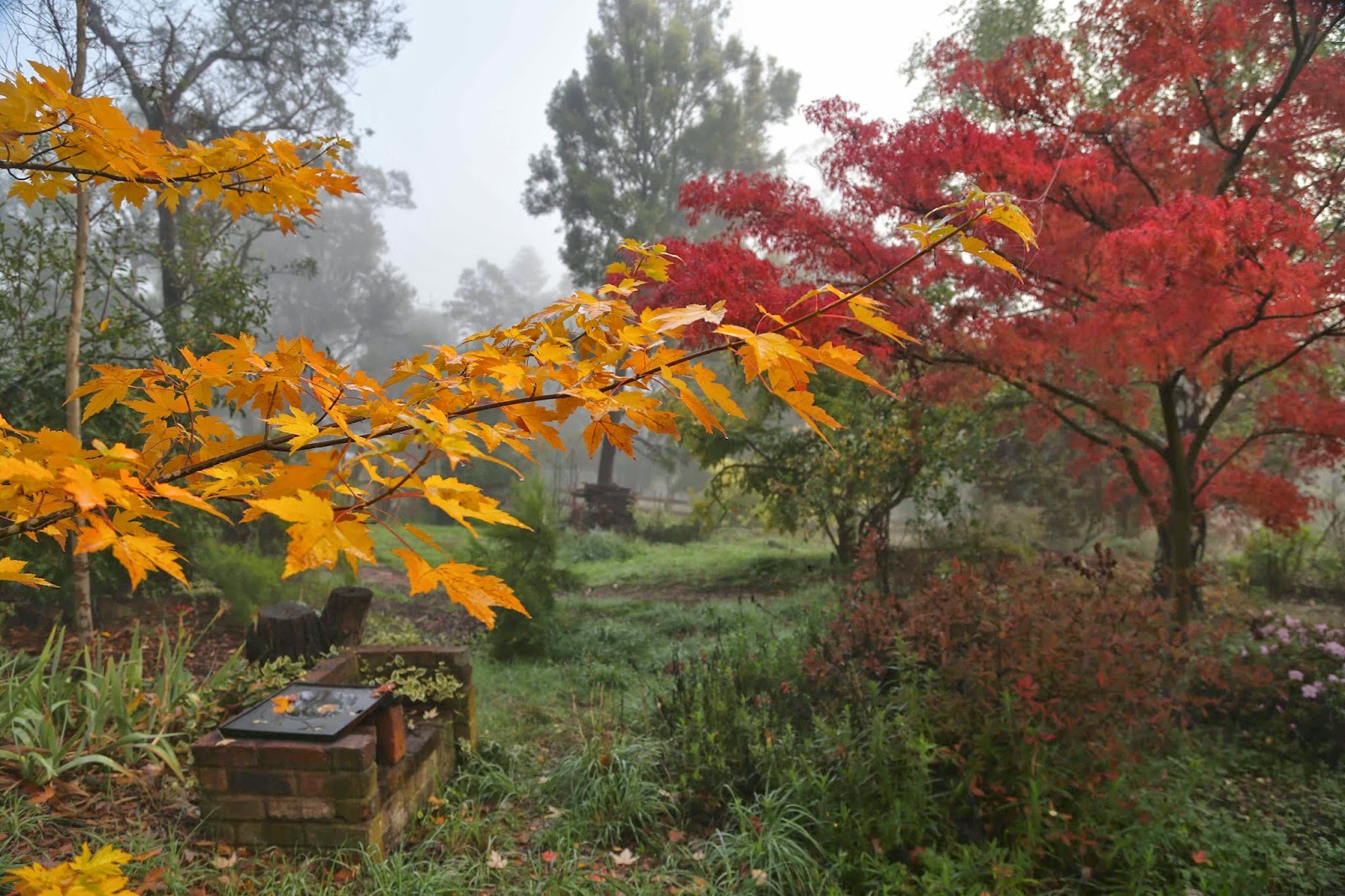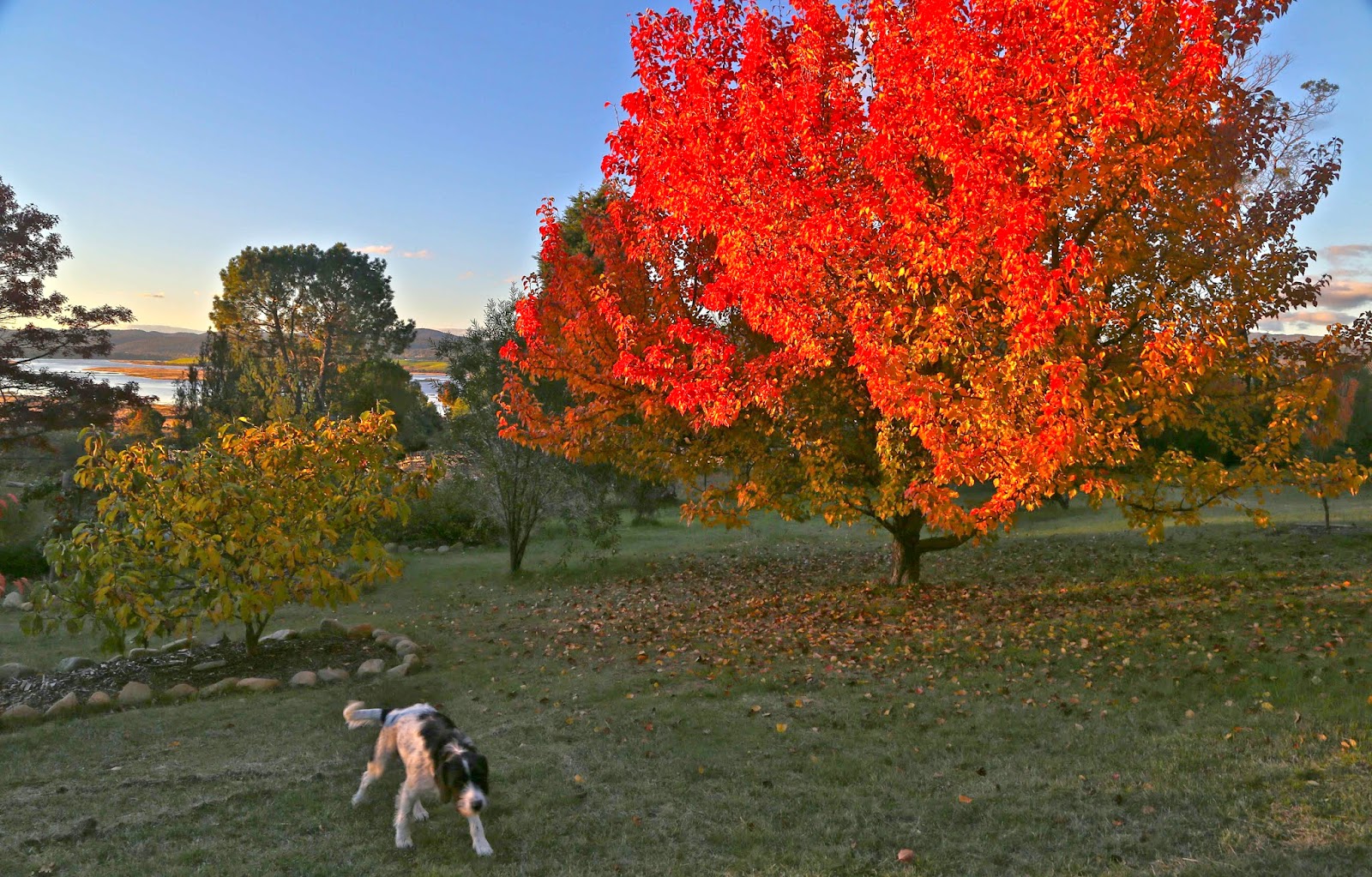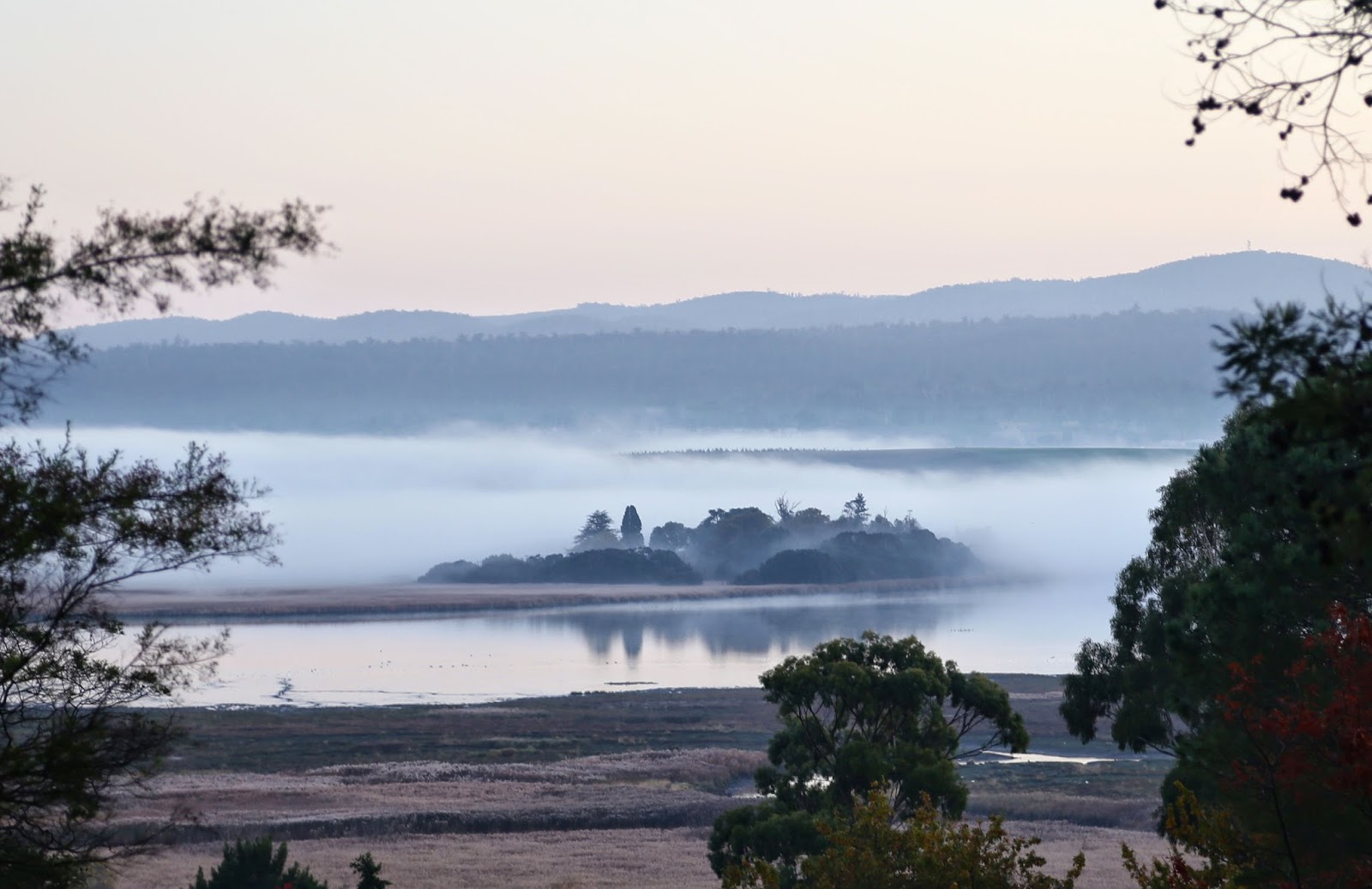Several of my instagram followers have expressed a wish to see some of my garden photos from this season, so, to all you lovers of mountains and wilderness, please accept my apology for this intrusion into the normal theme.
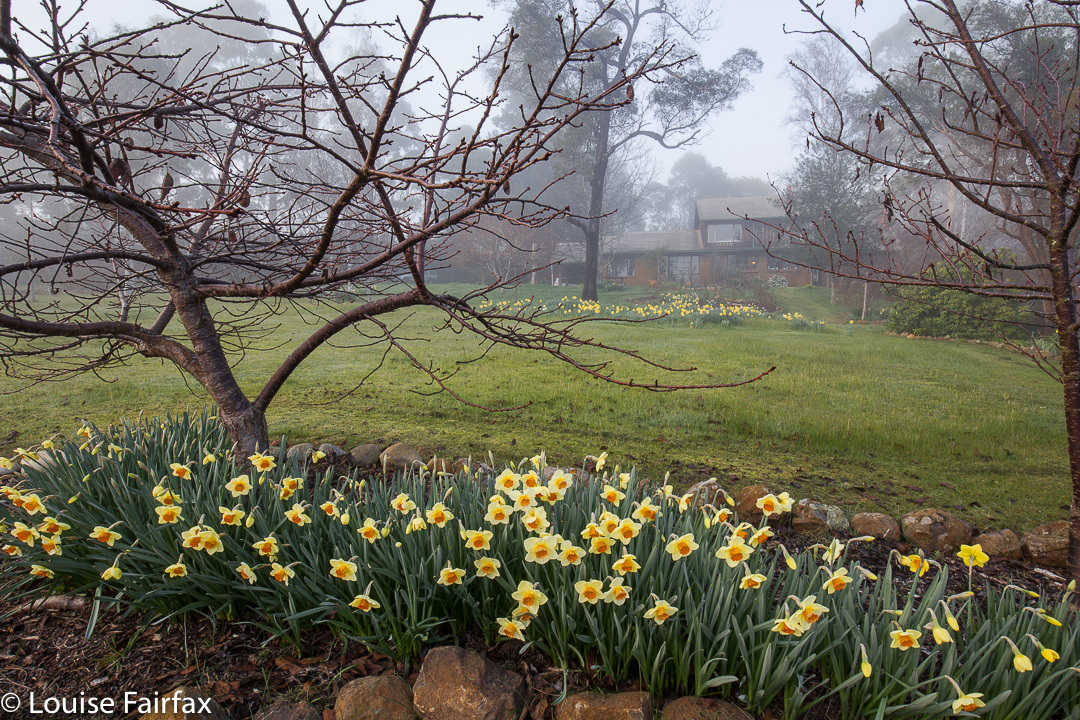 I have several friends who only want flowers to occur in the bush (or presumably up a mountain), in their natural state. I admit that a cultivated garden is, in that it is ordered, selected and arranged, “unnatural”, although it uses the products of nature. More to the point, for me, a garden is a creative outlet (like my photography): it is my playing with nature. I love to sieve the soil with my fingers (I never wear gloves), getting my hands, knees and face filthy while I am at it. I am thrilled that little Gussy has planting, and caring for what is planted, as a regular part of his preschool curriculum. I love the photos that arrive home of all the children with their fingers covered in pure, dirty earth. (Melbourne University Early Learning Centre – fabulous place).
I have several friends who only want flowers to occur in the bush (or presumably up a mountain), in their natural state. I admit that a cultivated garden is, in that it is ordered, selected and arranged, “unnatural”, although it uses the products of nature. More to the point, for me, a garden is a creative outlet (like my photography): it is my playing with nature. I love to sieve the soil with my fingers (I never wear gloves), getting my hands, knees and face filthy while I am at it. I am thrilled that little Gussy has planting, and caring for what is planted, as a regular part of his preschool curriculum. I love the photos that arrive home of all the children with their fingers covered in pure, dirty earth. (Melbourne University Early Learning Centre – fabulous place).
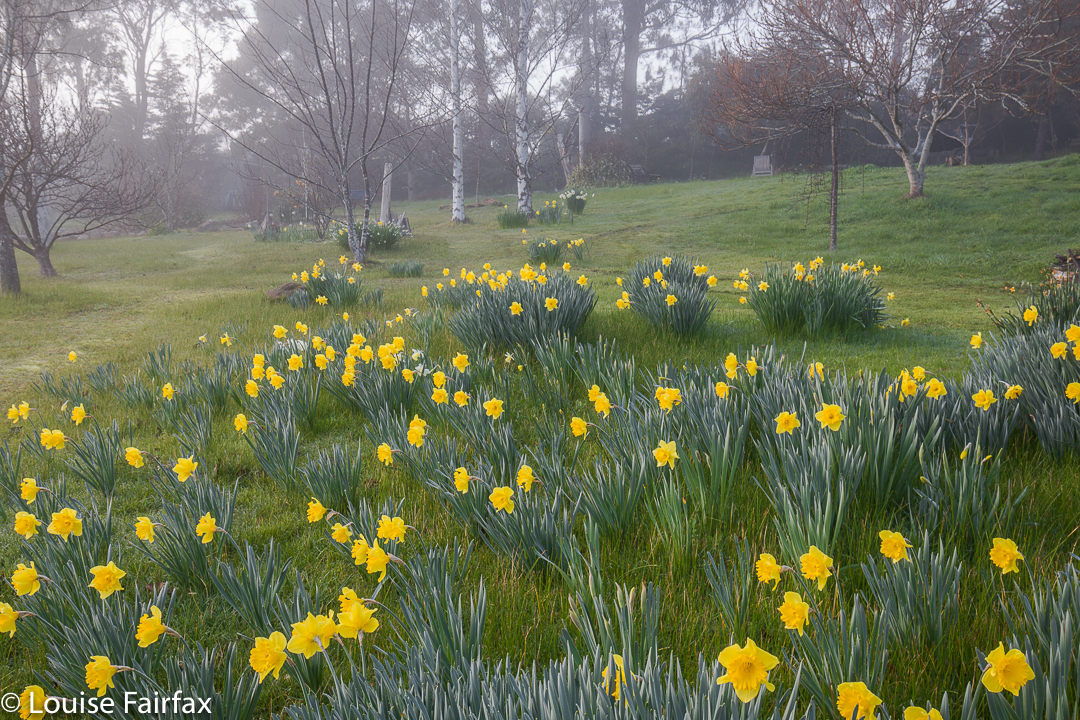 Famous Czech playwright, Karel Čapek, wrote that we must give more to the soil than we take from it. This is, surely, a life principle, not just a gardening one; children who are taught to care for plants learn this valuable lesson early.
Famous Czech playwright, Karel Čapek, wrote that we must give more to the soil than we take from it. This is, surely, a life principle, not just a gardening one; children who are taught to care for plants learn this valuable lesson early.
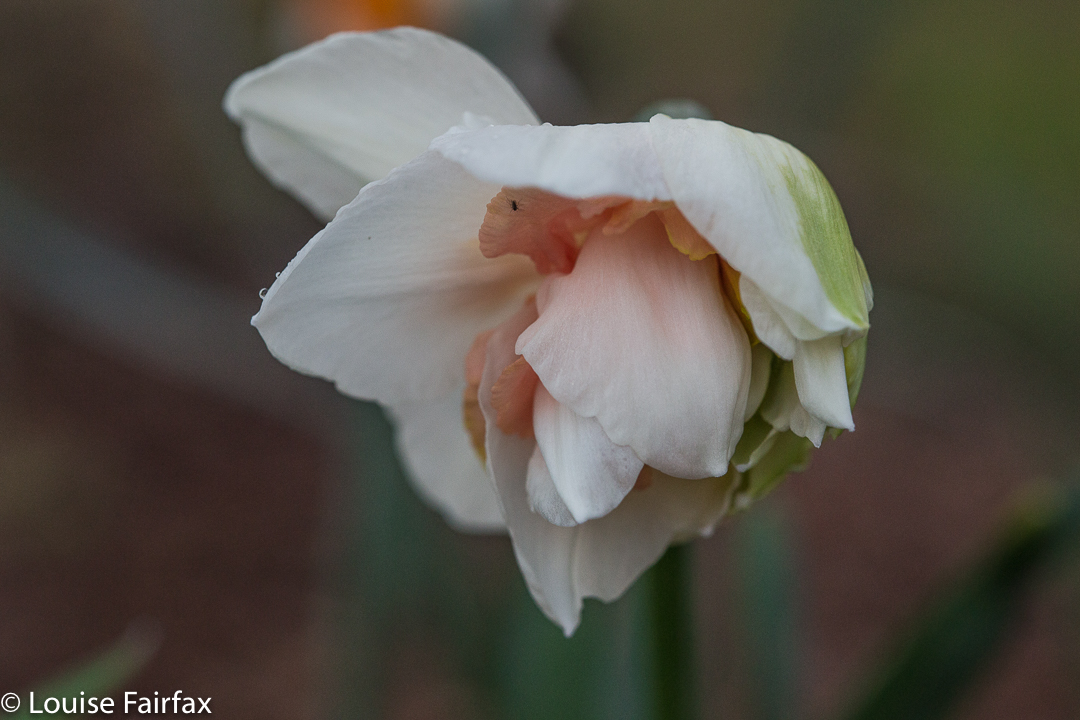 Universities like to have lovely gardens on campus. What does a garden have to do with learning? The answer was already intuited by the ancient Greek philosophers, the Italian garden academies of the renaissance and the wonderful gardens of the English colleges. Plato’s Academy in Athens had a garden that allowed him to withdraw from the polis and its attitudes and seek repose. Robert Pogue Harrison argues that a garden stands as a kind of haven, if not heaven, “a counterforce to history’s deleterious drives”. In a garden, you can withdraw from the masses and think. In that aspect, wilderness is a giant garden, albeit one that we have not had to care for in the same way that we care for a home garden.
Universities like to have lovely gardens on campus. What does a garden have to do with learning? The answer was already intuited by the ancient Greek philosophers, the Italian garden academies of the renaissance and the wonderful gardens of the English colleges. Plato’s Academy in Athens had a garden that allowed him to withdraw from the polis and its attitudes and seek repose. Robert Pogue Harrison argues that a garden stands as a kind of haven, if not heaven, “a counterforce to history’s deleterious drives”. In a garden, you can withdraw from the masses and think. In that aspect, wilderness is a giant garden, albeit one that we have not had to care for in the same way that we care for a home garden.
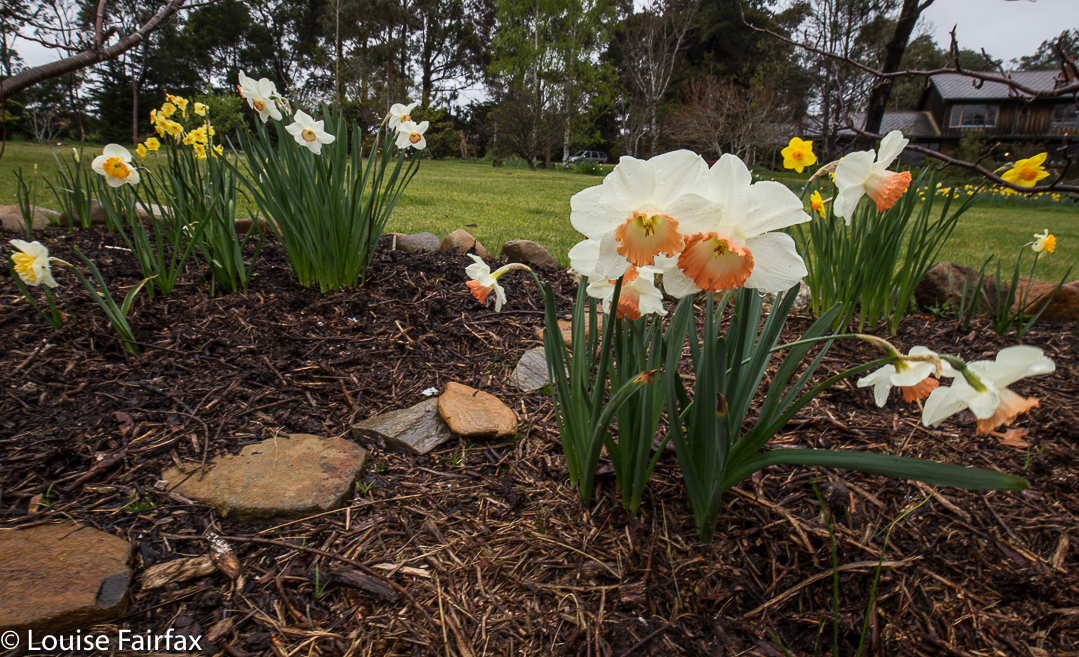 Gardens are frustrating: they need constant care – weeding, digging, mulching, mattocking, watering, improving the soil, worrying over sick plants, despairing over the rampaging growth of others. As Capek points out, gardeners do not garden because they believe in work, or because it is a form of fitness training, or even out of a commitment to beauty per se; gardeners garden because they are committed to the future welfare of the thing being tended. I garden because I want my almond tree to grow better, my roses to have more flowers, my daffodils to be healthier and more numerous. I am always looking forward to the next year when my trees will be even bigger, my flowers even more beautiful than this year. A gardener is always looking forward to a grand future.
Gardens are frustrating: they need constant care – weeding, digging, mulching, mattocking, watering, improving the soil, worrying over sick plants, despairing over the rampaging growth of others. As Capek points out, gardeners do not garden because they believe in work, or because it is a form of fitness training, or even out of a commitment to beauty per se; gardeners garden because they are committed to the future welfare of the thing being tended. I garden because I want my almond tree to grow better, my roses to have more flowers, my daffodils to be healthier and more numerous. I am always looking forward to the next year when my trees will be even bigger, my flowers even more beautiful than this year. A gardener is always looking forward to a grand future.
Gardening is the antithesis of consumerism, for the latter devours but fails to give back. Gardening teaches us to give as well as take, with our eyes on the future. If every human cared deeply about the state of the earth in the decades to come, our planet would be a much happier place to live in, as people would act with more responsibility and thought. Capitalism devours without a glance at the state the world is being left in for the next generation.
Gardening also teaches children (and adults) to care “outwards” for something other than the self. On the way home from preschool recently, I saw an Iris bulb lying on the road beside the path. Gussy and I were holding hands, but we let go so I could rescue this Iris, and stick it back in the soil of its bed. I made a depression with my fingers and stuck it in while he (hilariously) explained to me that it was there because of gorilla gardening (aged four). Magpies had come along and pulled it out. Together, we made sure this bulb was happily placed back in the earth before we continued our journey. A child who has learned at preschool and at home to care for plants (and pets) is, I sincerely hope, on the path to a life of seeing the self in relationship to others, both those living now and those who will be born later.
 One of the favourite sentences I have heard from Gussy is when he stood on our verandah and said: “Don’t you just love the way the light shines through the leaves, making patterns everywhere? I love it here.” I think Capek would have liked to have met him. Pity they are separated by nearly a century in time.
One of the favourite sentences I have heard from Gussy is when he stood on our verandah and said: “Don’t you just love the way the light shines through the leaves, making patterns everywhere? I love it here.” I think Capek would have liked to have met him. Pity they are separated by nearly a century in time.